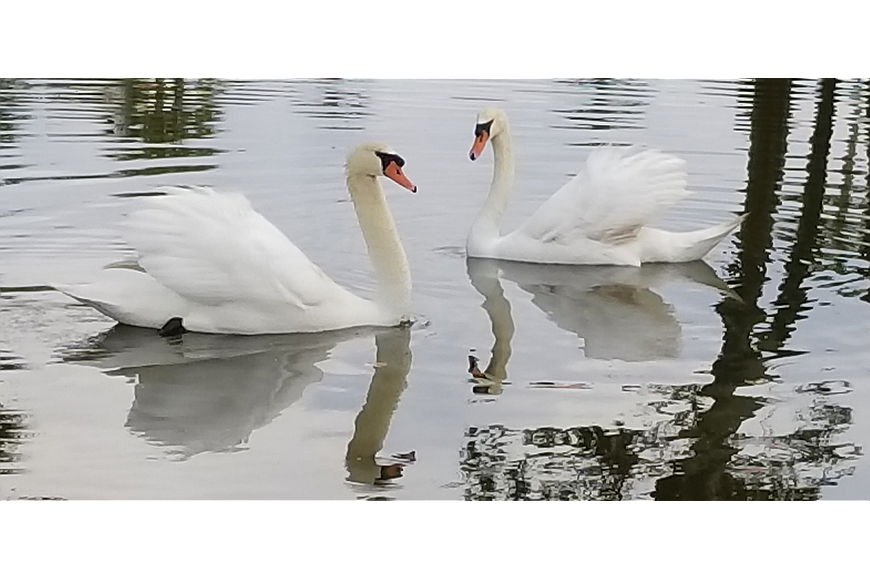- November 23, 2024
-
-
Loading

Loading

After a long incubation period, there will be no cygnets on Longboat Key this year.
David Novak, the unofficial swan keeper of the herd, said the six eggs from mating pair Clark and Greta failed to incubate properly. Had they done so, it would have been the first time Longboat Key had seen cygnets in two years.
Cygnets are born 35 days after egg-laying, typically around May 1. However, Greta laid her eggs near the north gate of Bay Isles late, so Novak expected them around April 8 or 9.
When he still didn’t see cygnets May 19, he decided to investigate. After taking one of the eggs from the nest, Novak found that the cygnet was only partially developed, leaving him to believe the incubation period was interrupted.
Swan eggs incubate near 99 degrees, and if the egg temperature drops below 78 degrees, there is danger the incubation will stop and the embryo will not develop.
“I believed what happened is during the heavy rainstorm we had, the level of water rose up and flooded the nest,” he said. “That would have chilled the eggs and once eggs chill in an incubation period, they don’t restart.”
By Tuesday, Greta had removed two more eggs from her nest, which was a signal to Novak that she felt the eggs weren’t going to hatch. Due to toll high heat can take on sitting mothers, Novak made the decision to save Greta’s life by destroying the remaining three eggs.
“Swans, and they’re not alone in this trait, they will save themselves before they save the offspring because they know they can make new offspring,” he said. “My action, I felt, was in line with what they would do in certain situations — they save themselves and breed again another day.”
Clark and Greta weren’t the only pair to mate this year, however. Due to a decreased number in swan population — down from 18 to 12 — Novak also bred Susie and Bubba, a newly mated pair.
Their nest on the Islandwide course is too hard to Novak to get to so he couldn't check the eggs' progress throughout the incubation period. However, when he could finally get to the nest, Novak found one remaining egg, which had stopped incubation.
“I thought I had the perfect formula this year, hedging my bets with two versus one,” he said. “The last thing I thought would happen is that neither would produce, and that’s what happened.”
While he said he is disappointed, the good news is that Clark and Greta are a fertile couple, and with the right conditions, should produce cygnets next year.
“You go through the big disappointment period of asking, “Where did I fail,’” he said. “’Then you have to get down to work and work on tomorrow and just walk out of the depressing situation and work for the health of the birds.”
Next year, Novak said he will focus on ensuring the swans have a better nesting environment than they had this year.